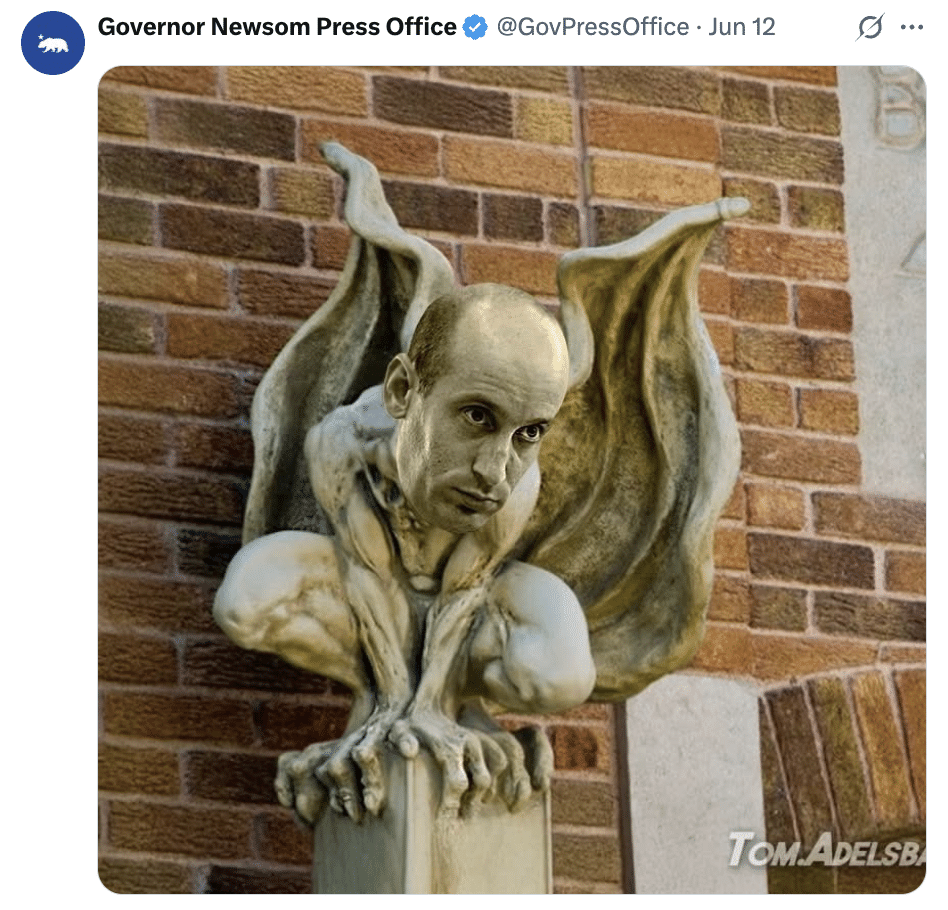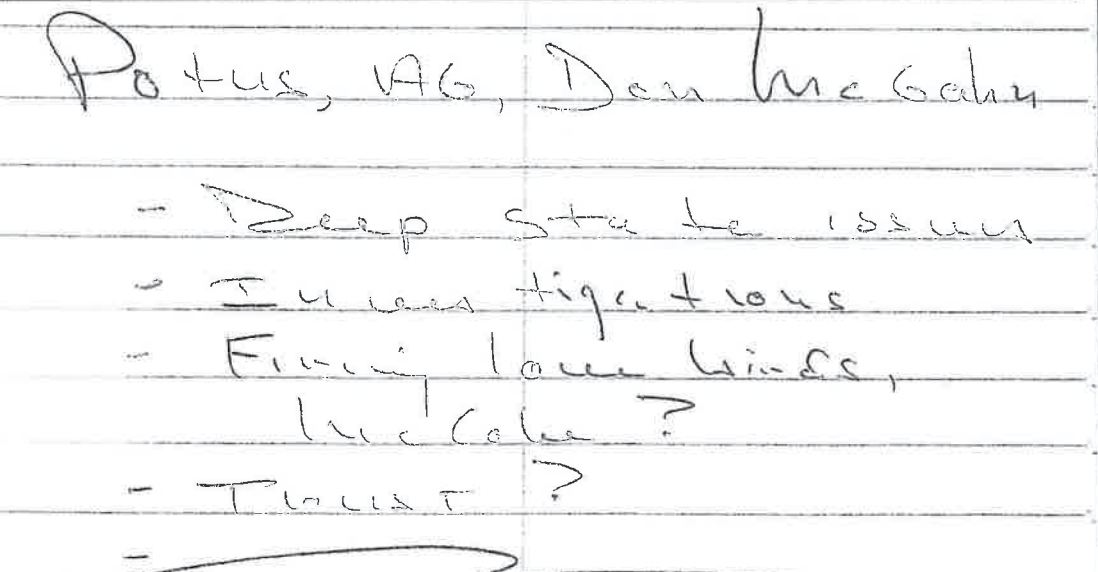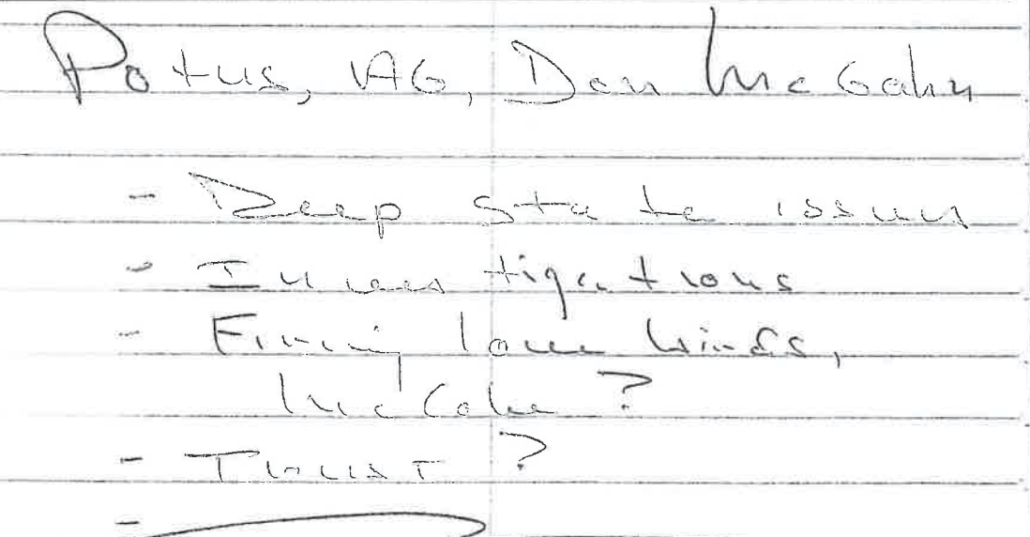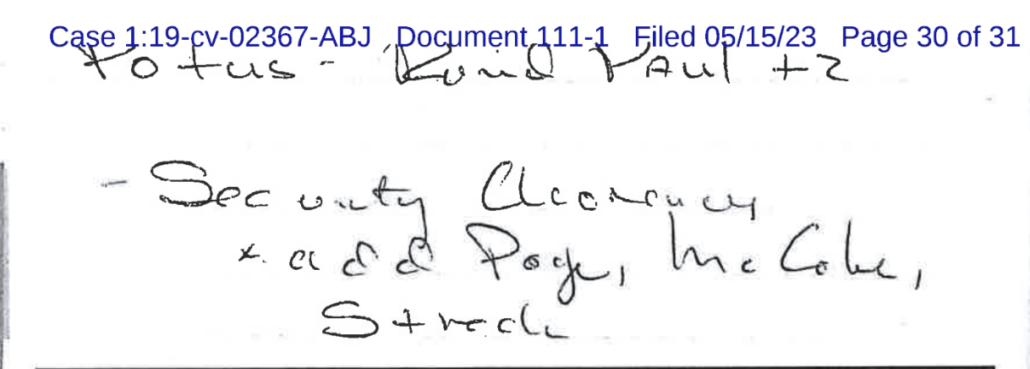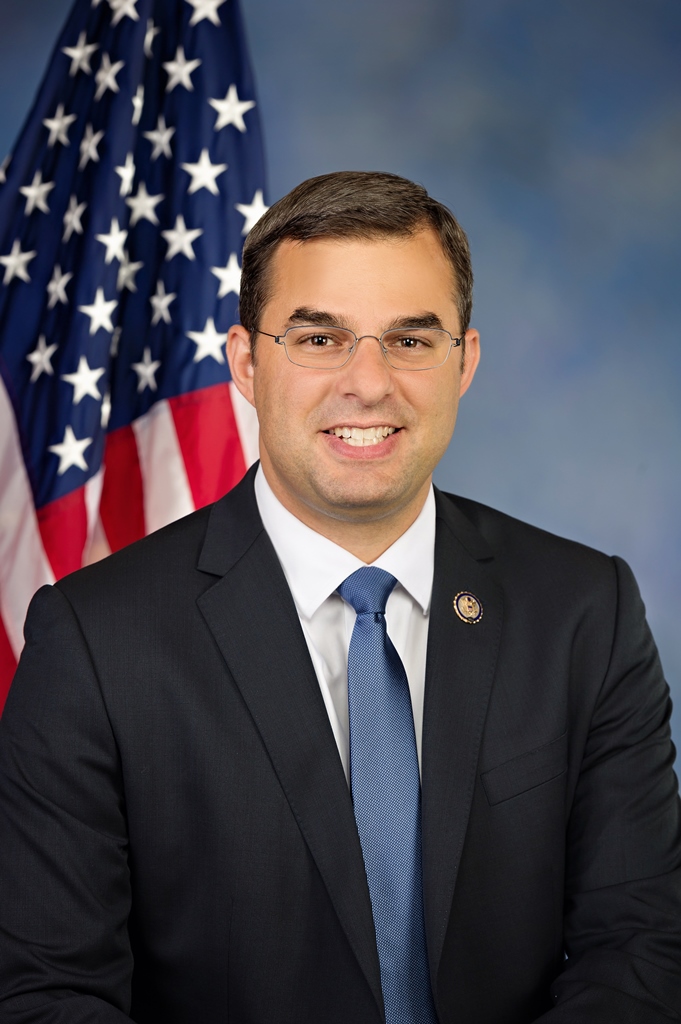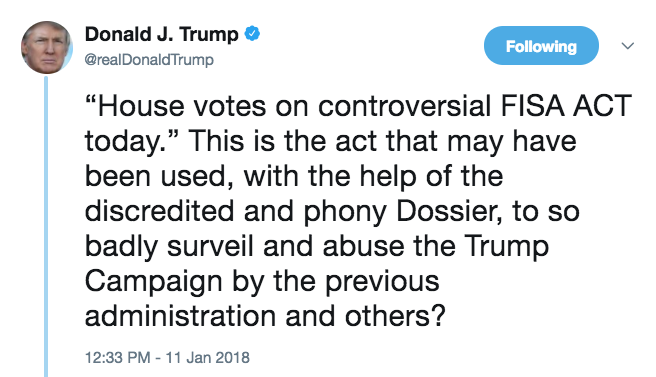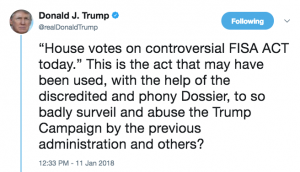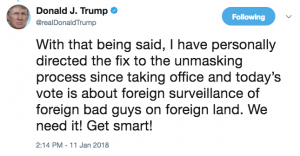John Thune’s Flopsweat about Funding Stephen Miller’s Gulag
Amid all the warmongering last week, there was an interesting head fake in the Senate.
On Tuesday, JD Vance went to a Senate lunch (rather than the Situation Room meeting on Iran) at which he told them the deadline for passing was the August recess — starting August 4.
On Wednesday, Susie Wiles went for a very short visit to the Senate to order them to get the whole thing done by July 4.
White House chief of staff Susie Wiles is encouraging Congress to get the “big, beautiful bill” to President Donald Trump’s desk by July 4.
Wiles told GOP senators at a closed-door lunch that the Independence Day deadline still holds as far as Trump is concerned, according to a person granted anonymity to describe the private meeting.
I started to write a long post (piggybacking on this one) about how the various timelines — the legal responses to Trump’s abuses and the economic impact of his disastrous policy choices — might make it harder to codify key parts of his abuses in law with the Big Ugly reconciliation bill. I was going to lay out how recent developments (this was so long ago I surmised that Trump’s Iran warmongering might cause him some political headaches and now … here we are, Trump talking regime change in the wake of an inconclusive illegal strike) might exacerbate the way his legislative agenda might be Overtaken By Events.
That post got Overtaken By Events.
The punch line of my original post was going to be an argument that Wiles was pushing the Senate to hurry up not because impending financial doom might make passing the Big Ugly harder, nor because the debt ceiling is approaching.
Rather, Kristi Noem is burning through cash.
President Trump’s immigration crackdown is burning through cash so quickly that the agency charged with arresting, detaining and removing unauthorized immigrants could run out of money next month.
Why it matters: Immigration and Customs Enforcement (ICE) is already $1 billionover budget by one estimate, with more than three months left in the fiscal year. That’s alarmed lawmakers in both parties — and raised the possibility of Trump clawing funds from agencies to feed ICE.
- Lawmakers say ICE’s parent agency, the Department of Homeland Security (DHS), is at risk of violating U.S. law if it continues to spend at its current pace.
- That’s added urgency to calls for Congress to pass Trump’s “Big Beautiful Bill,” which could direct an extra $75 billion or so to ICE over the next five years.
- It’s also led some lawmakers to accuse DHS and ICE of wasting money. “Trump’s DHS is spending like drunken sailors,” said Sen. Chris Murphy (D-Conn.), the top Democrat on the DHS appropriations subcommittee.
Zoom in: ICE’s funding crisis is being fueled by Trump’s team demanding that agents arrest 3,000 immigrants a day — an unprecedented pace ICE is still trying to reach.
This creates the possibility for a slew of legal challenges to Stephen Miller’s dragnet, both from those targeted in it challenging the legality of spending money to target them in the first place, but also from opponents who can start suing Trump for breaking the law by spending money that was not appropriated.
The dragnet is at somewhat-imminent risk of becoming an illegal use of funds.
And that comes as a few Republicans — most loudly, Rand Paul, who was bypassed as Chair for the Senate language on homeland security funding — start raising questions about why we need to blow so much money if Miller has already shut down the border.
Sen. Rand Paul is a frequent thorn in GOP leadership’s side. But his recent break over border security funding in President Donald Trump’s “big beautiful bill” has top Republicans pushing the bounds of institutional norms to rein him in.
Senior Republicans have sidelined the Kentucky Republican, who chairs the Senate Homeland Security and Governmental Affairs Committee, in their talks with the White House over policies under the panel’s purview.
Budget Chair Lindsey Graham (R-S.C.) told POLITICO he has taken over as the lead negotiator around how to shepherd through tens of billions of dollars for border wall construction and related infrastructure in the GOP megabill. Meanwhile, a Senate Republican aide said Sen. James Lankford (R-Okla.) — who heads the relevant Homeland Security subcommittee — will be the point person for negotiating the bill’s government affairs provisions.
With every other committee chair helping manage negotiations for their panels’ portions of the massive tax and spending package, cutting Paul out is unprecedented. But Paul proposed funding border security at a fraction of what the administration requested and the House passed in its bill.
I’ve long been tracking conflict among Republicans over the financial parts of the Big Ugly. But even as Trump’s polling turns south on Miller’s gulag, the huge funding package for it is creating some headaches for the must-pass reconciliation bill.
In an op-ed in Fox News today (accompanied by live Fox News pressure), John Thune gives up the game.
He argues that Republicans have to get the bill done by July 4 — Susie Wiles’ deadline, not JD’s. And his argument focuses primarily on the immigration funding (but also Golden Dome, which Mark Kelly recently exposed as an impossible boondoggle).
In large part, this bill is the culmination of President Trump’s campaign promises and the promises that Republican senators have made to our voters. Chief among them is keeping the American people safe through strong border security and a military strong enough to deter threats and conflicts around the world before they begin.
President Trump has achieved remarkable success in ending the Biden border crisis and removing the criminal illegal aliens that President Biden let walk into our country – but it hasn’t been cheap, and the administration has told us that resources are running out. This bill will fully fund the border wall and President Trump’s successful policies for the entirety of his presidency, removing any possibility that Democrats will hold those resources hostage to try to increase other government spending.
This same principle also applies to defense funding. Recent conflicts around the world should make clear the need to have a modern and lethal fighting force that can keep the American people safe. This means smart, generational investments like President Trump’s Golden Dome for America to defend against advanced drones, missiles, and hypersonics, as well as prioritizing building new ships and unmanned vehicles.
A nation cannot prosper unless it is secure, and with our borders and defense capabilities bolstered, the next key pillar of this bill is creating prosperity in America.
[snip]
Senators have worked to develop this bill for well over a year now. Now it is time to act. Border resources are drying up. National security needs have never been more apparent. And with each passing day, we move closer to reaching both our nation’s debt limit and the largest-ever tax increase on the American people.
Senators return to Washington today and we will remain here until this bill is passed. We know that Democrats will fearmonger and misrepresent our efforts, and we expect them to drag this debate long into the night with unrelated issues. However, I am confident we will get this bill across the finish line. [my emphasis]
It may not be just the burn rate of Noem’s spending spree.
That is, Noem is blowing through cash and the result of it is horrible images of American citizens being assaulted by masked goons. Noem is blowing through cash and businessmen in all sorts of industries are discovering that their businesses will suffer. Noem is blowing through cash and everyone is talking about how terrible the consequences of Miller’s demand for 3,000 bodies a day is.
Noem is blowing through cash and the issue of immigration is becoming a liability, not Trump’s biggest advantage.
And so Thune will attempt to do Susie Wiles’ bidding to get the dragnet funded before it’s too late.

